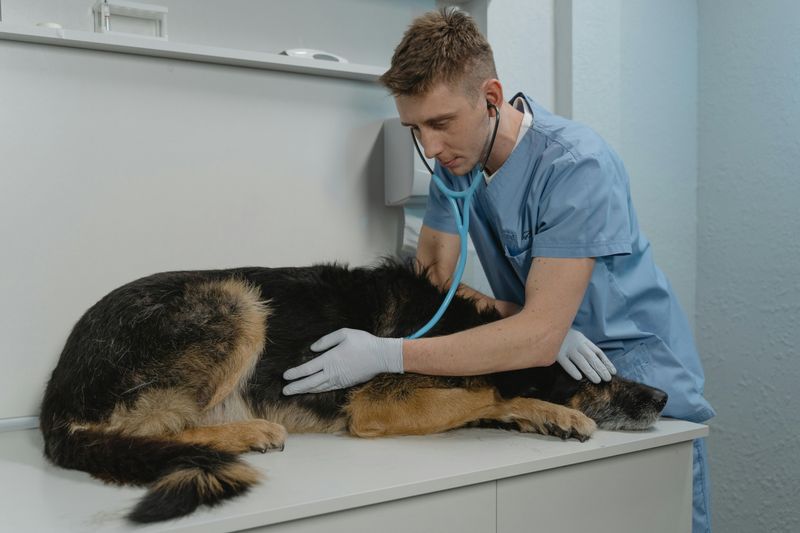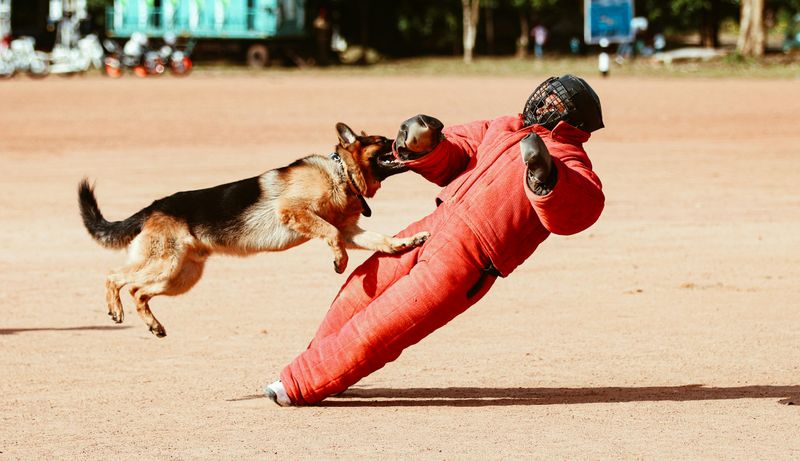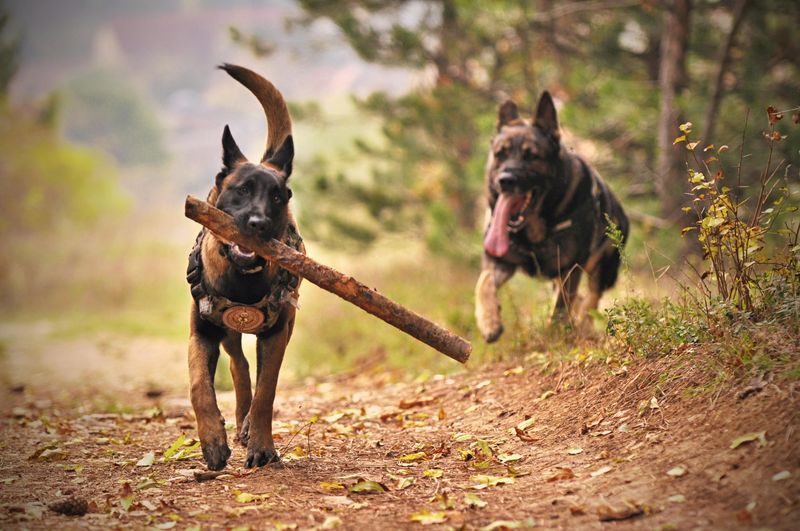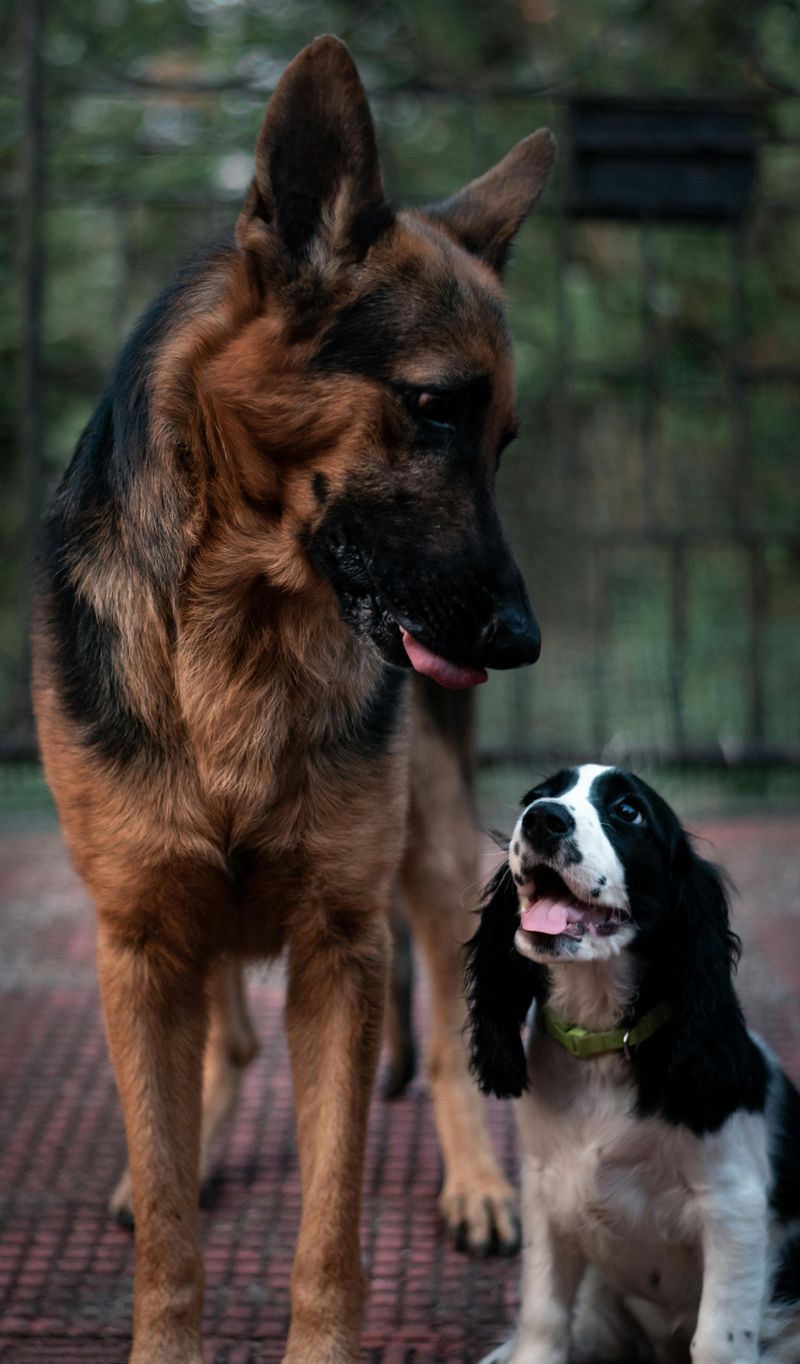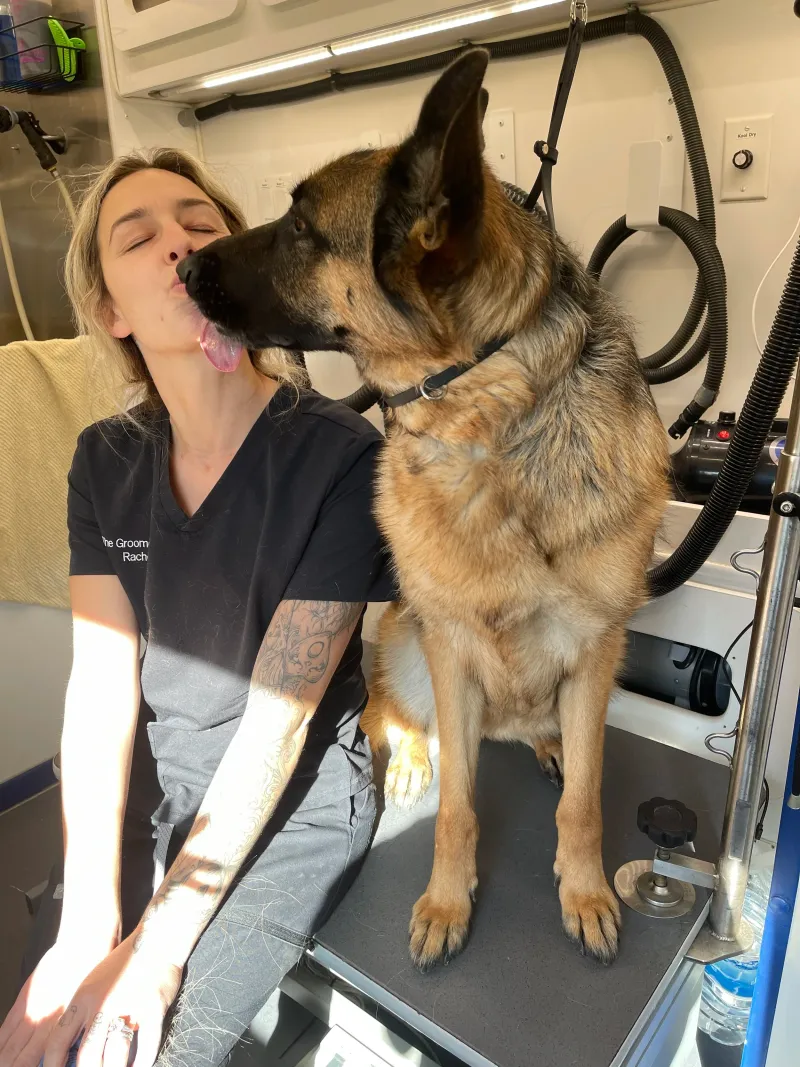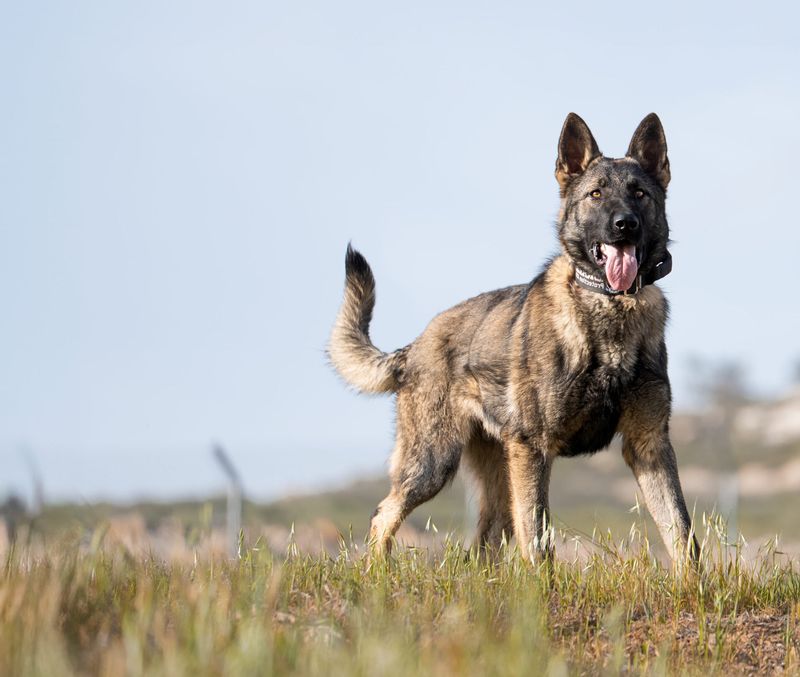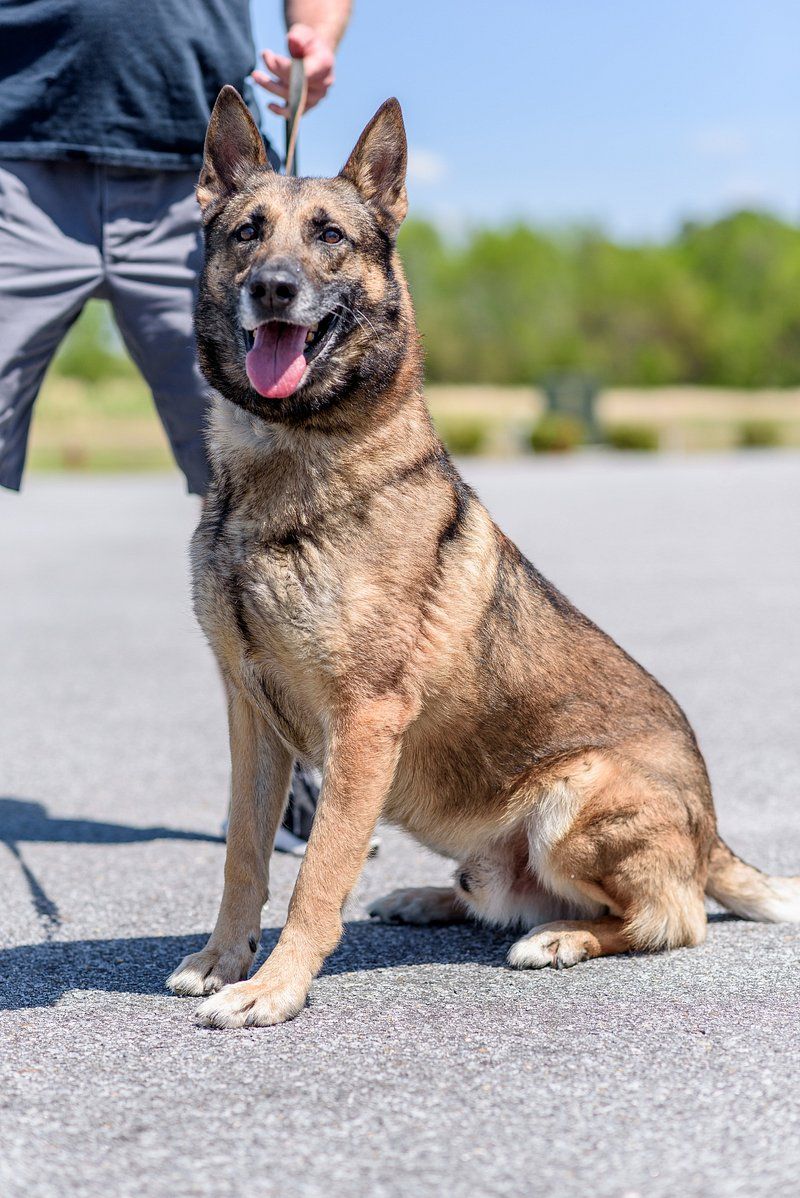Adopting a German Shepherd is a rewarding experience, but it’s not without its challenges. Known for their intelligence, loyalty, and energy, these dogs require special attention and care. Below are 19 key challenges to consider before bringing a German Shepherd into your home.
They shed heavily year-round
Living with a German Shepherd means embracing a furry lifestyle. Their double coat sheds year-round, with two major shedding seasons in spring and fall. This constant shedding requires daily brushing to keep the fur under control.
Investing in a good vacuum cleaner and grooming tools is wise. While some might find this an overwhelming task, others might enjoy the bonding time grooming offers. It’s a small price to pay for the companionship of such a loyal friend.
They’re highly intelligent but need constant mental stimulation
German Shepherds are renowned for their intelligence, often excelling in obedience and service roles. However, this sharp mind requires regular stimulation to prevent boredom. Puzzle toys, training sessions, and interactive games can keep them engaged.
Failing to provide mental challenges may lead to destructive behaviors. Owners must be creative in finding ways to stimulate their minds. Whether teaching new tricks or engaging in agility courses, the effort pays off in a happier and more well-adjusted dog.
They can develop separation anxiety
Separation anxiety is a common issue for German Shepherds, who form strong bonds with their families. Left alone for extended periods, they may exhibit symptoms like barking, chewing, or even escaping.
Building their confidence by gradually increasing alone time can help ease this anxiety. Interactive toys or leaving the TV on can provide distraction. Early training to reduce dependency is crucial in preventing this issue from escalating, ensuring a secure and contented pet.
They’re prone to hip and joint issues
Hip dysplasia and joint issues are prevalent in German Shepherds, often leading to discomfort and mobility problems. Regular veterinary check-ups and a healthy diet can mitigate these risks.
Weight management and appropriate exercise are vital in maintaining joint health. Supplements like glucosamine may also be beneficial. Awareness and early intervention can lead to a more comfortable life for your furry friend, preventing these common ailments from overshadowing their vibrant nature.
They require experienced training
German Shepherds excel with proper training, but they can be a handful for inexperienced owners. Their intelligence and strong will demand consistent and skilled training methods.
Professional obedience classes or working with experienced trainers can provide the structure they need. Training should be firm yet gentle, tapping into their eagerness to learn. An owner willing to invest time and patience will find a loyal and well-behaved companion by their side.
They can become overprotective if not socialized
Without proper socialization, a German Shepherd may become overly protective or even aggressive. Exposing them to various environments, people, and animals at a young age can help them develop into well-rounded adults.
Taking them to dog parks, arranging playdates, or enrolling in socialization classes ensures they understand when protection is needed and when it’s not. This balance is crucial to prevent unwanted behaviors that could arise from their natural guarding instincts.
They’re large and need space to move
German Shepherds are not apartment dogs. Their large size and energetic nature require ample space to move and explore. A home with a fenced yard is ideal, allowing them the freedom to run and play.
Confined living conditions may lead to frustration and behavioral problems. For those living in smaller spaces, nearby parks or regular trips to open areas can provide the necessary exercise. Space is a luxury they truly appreciate, contributing to their overall happiness and health.
They require extensive daily exercise
A German Shepherd’s energy is boundless, requiring more than just a leisurely walk around the block. These spirited dogs thrive on vigorous activities like running, hiking, or playing fetch. Without sufficient exercise, they may become restless and develop behavioral issues.
For those who enjoy an active lifestyle, a German Shepherd can be a perfect companion. But sedentary or busy individuals may find this requirement challenging. It’s essential to commit to at least one to two hours of exercise daily, ensuring their physical and mental needs are met.
They bark often when bored or alert
The vocal nature of German Shepherds means they often bark to alert their families or when they’re bored. Understanding their language requires patience and observation.
Barking can be managed through training and by providing sufficient exercise and mental stimulation. Addressing the root cause, whether it’s boredom or alertness, can help in curbing excessive noise. Learning to communicate effectively with your Shepherd ensures a harmonious living environment.
They’re not ideal for sedentary owners
Life with a German Shepherd is anything but sedentary. Their energetic personality requires an owner who can keep up with their pace, engaging in daily activities and adventures.
For those who prefer a more relaxed lifestyle, this breed might be overwhelming. However, if you enjoy outdoor activities and want a partner to join you, a German Shepherd will thrive by your side. Their enthusiasm for life is infectious, making every outing an exciting event.
They need strong leadership and structure
German Shepherds respect strength and leadership, responding well to an owner who provides clear rules and expectations. This structure helps them feel secure and understand their role within the family.
Setting boundaries and maintaining consistency are essential in preventing confusion or unwanted behaviors. With proper guidance, a German Shepherd will become a disciplined and loyal companion, flourishing in a structured environment.
They can intimidate other pets
The commanding presence of a German Shepherd can be intimidating to other pets, especially smaller or timid animals. Proper introductions and monitored interactions are key to creating harmony in multi-pet households.
Their protective instincts must be managed to prevent conflicts. With patience and understanding, a German Shepherd can learn to coexist peacefully with other pets, enriching the household dynamic with their playful nature.
Their grooming needs are significant
The grooming needs of a German Shepherd are not to be underestimated. Regular brushing, nail clipping, and occasional baths keep them looking their best and feeling comfortable.
While some may see this as a chore, others find joy in the bonding experience grooming provides. The investment in their appearance reflects their majestic nature, showcasing the pride and care that comes with owning this remarkable breed.
They can be aloof with strangers
While affectionate with their family, German Shepherds can be reserved with strangers. This aloofness is part of their guarding nature and protective instincts.
Proper socialization and positive experiences with new people can help them be more accepting. Understanding this trait helps in managing expectations, ensuring they remain polite and well-mannered during introductions without compromising their natural vigilance.
They mature slowly — puppy behavior lasts longer
German Shepherds are known for their extended puppyhood, maturing slower than other breeds. This means their playful and sometimes mischievous behaviors last longer, requiring patience and understanding from their owners.
This prolonged youthful exuberance can be endearing but sometimes overwhelming. Structured training and consistent routines help guide them through this phase, transforming their boundless energy into well-mannered adulthood.
They need consistent discipline and boundaries
Consistency is key when raising a German Shepherd. They thrive in environments where boundaries are clear and discipline is maintained.
This consistency helps them understand their place and what is expected, leading to a more balanced and well-adjusted pet. Firm but fair guidance ensures they grow into responsible and obedient companions, reflecting the dedication and effort invested by their owners.
They may develop aggression if improperly trained
Improper training or lack of discipline can lead to aggressive behaviors in German Shepherds. Recognizing the importance of early and appropriate training is essential to prevent these tendencies.
By focusing on positive reinforcement and consistent rules, owners can guide their Shepherds into becoming gentle and caring companions. Understanding their needs and providing the right guidance ensures they grow into the loyal protectors they’re known to be.
They don’t tolerate loneliness well
German Shepherds are social animals who thrive on companionship. Loneliness can lead to feelings of distress and may manifest in destructive behaviors.
Ensuring they have company or providing engaging activities when alone helps alleviate this issue. Whether it’s a family member, a pet sitter, or interactive toys, attention to their social needs fosters a happy and balanced life.
Their lifespan is shorter than smaller breeds
The robust German Shepherd, with its impressive stature and keen intelligence, generally enjoys a lifespan of around 9 to 13 years. This is shorter compared to many smaller breeds, which can sometimes live well into their teens.
Awareness of this lifespan helps owners cherish every moment and provide the best care possible. Regular veterinary visits, exercise, and a balanced diet contribute to a healthy and fulfilling life, allowing them to share their vibrant spirit with their loved ones for as long as possible.




